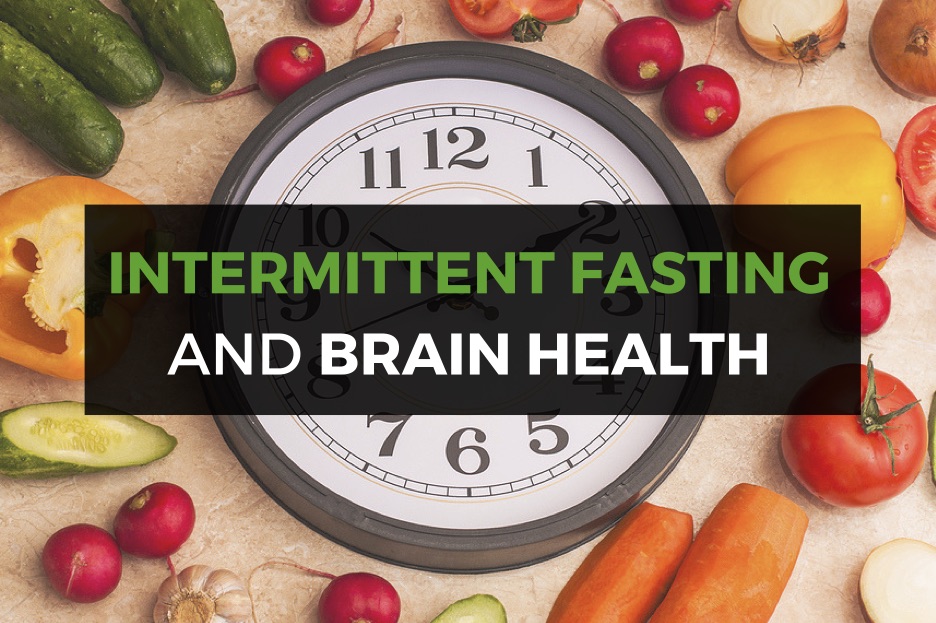August 23, 2017

Intermittent fasting involves periods of voluntary abstinence from food and a scheduled program of eating and fasting. For example, one might fast for 16 hours, leaving eight hours to get in the day’s calories. Dozens of books promote various fasting dietary patterns and the web offers hundreds of fasting-related sites. There is evidence-based research showing intermittent fasting as a tool for improving human health.(4)
Improves brain function, learning and memory
Helps the brain create new neurons
Protects against brain damage
Increases energy
Reduces body fat
Fights off disease
Supports hormone regulation
Slows the aging process
Promotes insulin sensitivity
Lowers risk of type 2 diabetes
Fights free radical damage
Assists in calorie restriction
Helps you lose weight and body fat
Reduces inflammation
Improves sleep
Strengthens the immune system
Can increase life span
It’s becoming clear that the advantages of intermittent fasting are even further reaching, with enormous implications for brain health. Research studies have shown that intermittent fasting increases synaptic plasticity (a biological marker of learning and memory), enhances performance on memory tests in the elderly, leads to the growth of new neurons, promotes recovery after stroke or traumatic brain injury, decreases risk for neurodegenerative diseases like Alzheimer’s and Parkinson’s disease, and may improve quality of life and cognitive function for those already diagnosed with these diseases. Intermittent fasting has also been shown to play a preventative and therapeutic role in mood disorders like anxiety and depression.(2)
Research shows that intermittent fasting improves learning and memory. It demonstrates that intermittent fasting reduces oxidative stress in the brain and improves brain function and structures. (3)
The vulnerability of the nervous system to advancing age is all too often manifest in neurodegenerative disorders such as Alzheimer’s and Parkinson’s diseases. Evidence suggests that caloric restriction and intermittent fasting can prolong the health-span of the nervous system by impinging upon fundamental metabolic and cellular signaling pathways that regulate life-span. Caloric restriction and intermittent fasting help protect neurons against genetic and environmental factors to which they would otherwise succumb during aging.(1)
There are several different ways to incorporate intermittent fasting into your routine. In one method, you severely restrict calories (think 400-500 total intake per day) two to three days a week. In another, you confine your food intake to an 8-hour period every day; and in yet another you fast once a week for a 24 to 36 hour period.(2) A popular intermittent fasting plan right now is the 5:2 fast. On 5 days of the week you eat as you normally would, while on the other 2 days you restrict calories to 500-600 per day. You need to keep your lifestyle and daily routine in mind when choosing the best method for you.
Fasting isn’t for everyone, however. If you have a health condition of any type, then please check with your doctor first. It is not recommended for children, teenagers, or pregnant or breast feeding women. It’s best not to try this if you are recovering from surgery, sick with a fever, or on certain medications. It is also possible that you can experience some side effects of intermittent fasting such as headaches, fatigue, dizziness and moodiness.
While intermittent fasting is one way to protect your brain, remember that eating a healthy diet and keeping your hormones in balance are key. Take our symptom checker quiz today to find out if you could have hormone imbalance.
Research
1. Caloric Restriction and Intermittent Fasting: Two Potential Diets for Successful Brain Aging
2. Intermittent Fasting: Try This at Home for Brain Health
3. Chronic Intermittent Fasting Improves Cognitive Functions and Brain Structures in Mice
4. Intermittent Fasting and Human Metabolic Health
"*" indicates required fields
Since 1989, Hotze Health & Wellness Center has helped over 33,000 patients get their lives back using bioidentical hormones that restore hormones to optimal levels, strengthen immune systems, and increase energy levels. Our treatment regimen addresses the root cause of hypothyroidism, adrenal fatigue, menopause, perimenopause, low testosterone, allergies, and candida.
Led by best-selling author, radio host and leading natural health expert, Steven F. Hotze, M.D., our medical team has over 100 years’ combined medical experience backed by a staff of nearly 100 caring professionals who provide an environment of hope and extraordinary hospitality for each of our patients, who we call our guests. It is our deepest desire to help you obtain and maintain health and wellness naturally so that you may enjoy a better quality of life, pure and simple.
Do you want to live a healthy, happy, purpose-driven life? Do you want to restore your health so that your loss of energy, weight gain, joint pain, depression and lack of drive or motivation won’t hold you back from achieving your personal and professional goals?
Dr. Steven Hotze wants that for you, too. In fact, in his powerful and passionate video entitled, “What I Believe”, Dr. Hotze shares how his Christian worldview and pivotal experiences have ignited a deep desire to offer the message of hope and optimal health to all who need to hear it.









At Hotze Health & Wellness Center, our doctors are changing the way women and men are treated through the use of bioidentical hormones. Our natural treatments have helped over 33,000 individuals with hypothyroidism, adrenal fatigue, menopause, perimenopause, low testosterone, allergies, candida, detoxification and nutritional deficiencies.
Meet our doctors"I went from feeling tired and foggy to to getting my energy and vitality back!”
Leave a Reply